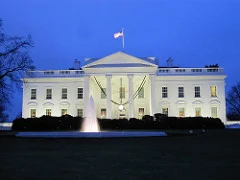A primer about why supporting STEM and diversity can help provide more talent for startups.
Engine and Tech:NYC Support Sen. Moran and Warner's Startup Act
Senators Jerry Moran (R-KS) and Mark Warner (D-VA) reintroduced their Startup Act, bipartisan legislation intended to encourage job growth and the creation of new innovative businesses. In 2017, the senators last introduced this legislation, which would accelerate the commercialization of university research, review and improve the regulatory processes at the federal, state and local levels, and modernize an Economic Development Administration (EDA) program designed to promote innovation.
Engine Weighs in on Proposed H-1B Visa Requirements
Rescission of International Entrepreneur Rule Bad for Startups
The Trump Administration’s decision to rescind the International Entrepreneur Rule (IER) is deeply disappointing for startups across the country. The rule was enacted to create a pathway for immigrant entrepreneurs to build companies and create jobs in the United States. For an Administration that has promised to spur job growth, this decision is incredibly short-sighted and detrimental to our long-term economic prosperity.
Reflecting on Diversity in Tech on MLK Day
Today, as we celebrate Martin Luther King Jr., one of the most ardent advocates for the advancement and equality of African Americans in history, we should reflect on the continuing injustice in our socioeconomic system and contemplate how we can more effectively work to close the racial entrepreneurship gap.
2017 Year in Review: Immigration Reform
The debate over immigration policy intensified in 2017 as the new administration issued several executive orders aimed at curbing the flow of immigrants to the United States. Engine led the charge in pushing back against many of these measures, including a letter signed by over 200 startups opposing the Administration’s Executive Order banning citizens from seven countries. Skilled immigrants, especially those admitted under the H-1B program, bolster the country’s capacity for innovation and provide immense benefit to its economy at large. What’s more, foreign talent has fueled America’s thriving culture of entrepreneurialism and played a central role in making our country the leader in technology startups.
Engine Celebrates Women's Small Business Month
Engine's Statement on Trump's Decision to End DACA
Engine Statement on President Trump’s ‘Buy American, Hire American’ Executive Order
Yesterday, President Donald Trump signed an executive order reiterating the Administration’s policy to buy American and hire American. The ‘Hire American’ side of the Executive Order directs federal agencies to evaluate the various programs that allow foreign workers to enter the United States, with a particular focus on the H-1B visa program.
Engine Statement on Ninth Circuit Ruling on Immigration Ban
Today, the U.S. Court of Appeals for the 9th Circuit ruled against President Trump’s executive order banning the citizens of seven countries and refugees from entering the U.S., maintaining a lower court’s freeze on the order. As a result, immigrants and refugees who were previously barred from the country under Trump’s EO can continue to enter the U.S.
More than 200 Startups & Investors Push Back Against Immigration Executive Orders
Today, more than 200 startups and investors from across the country joined Engine and the National Venture Capital Association (NVCA) in sending a letter to President Trump opposing his Executive Orders on immigration—both the immigration ban EO signed on January 27th and the draft EO that would roll back existing worker visa and parole programs.
Engine Statement on Immigration Executive Order
The startup community is deeply troubled by the Administration’s decision to limit the movement of immigrants—including lawful visa holders—into the U.S. on the basis of religion and country of origin—a move that came with no forewarning and has engendered uncertainty for many people, including employees at America’s startups. The executive order is both morally and economically misguided, and sets a dangerous precedent that signals to the rest of the world that America is no longer open for innovation.
Our Take on the Final International Entrepreneur Rule
On Friday, the White House released an advance copy of its final International Entrepreneur Rule, which will allow qualifying foreign entrepreneurs to build their startups in the U.S. The final rule will be published in the Federal Register today and will become effective on July 17, 2017.
2016 Year in Review: Talent + Diversity
Conversations about talent and diversity were once again at the forefront in 2016, with a heated Presidential election, bold actions by the Obama Administration around immigration and computer science education, and efforts by major tech players to diversify their workforces. The tech community and policymakers continued to search for solutions, and while 2016 didn’t unearth a silver bullet for fixing tech’s workforce and diversity issues, significant progress was made.
Startup News Digest 12/23/16
A Big Year for Startup Policy in 2016. The Startup News Digest will be taking a hiatus over the holidays, but you can still get your startup policy fill on our blog. Yesterday, we began publishing Year in Review posts on some of 2016’s most notable debates in tech and entrepreneurship. Watch this space for reports on capital access, intellectual property, net neutrality, emerging technologies, and more over the coming days. Thanks for all of your support in 2016, and we’ll catch you in the new year!
Training the Next Generation of Tech Talent
Computer Science (CS) Education Week is an annual initiative that aims to get kids excited about computer science and inspire interest in technology careers—an effort that is more important now than ever. It’s no secret that demand for computer science professionals has skyrocketed in recent years. Virtually every industry has an increasing need for STEM workers, especially those with a background in computer science and coding. And yet, there is a growing gap in the availability of these skilled individuals. There are currently over 500,000 open computing jobs nationwide, but last year, only 42,969 computer science students graduated into the workforce. In fact, there are fewer students graduating with degrees in computer science today than there were ten years ago. Our workforce is woefully unprepared to meet the growing demand for IT professionals.
Engine Applauds International Entrepreneur Rule, Recommends Additional Improvements
At Engine, we’ve seen firsthand some of the extraordinary contributions that immigrant entrepreneurs have made to the startup economy. One-third of U.S. venture-backed companies that went public between 2006 and 2012 had at least one immigrant founder. Moreover, immigrant entrepreneurs started, in whole or in part, some of the most important technology companies of our time, including Google, Intel, Yahoo!, eBay, and WhatsApp. In fact, the United States was home to almost 2.9 million foreign entrepreneurs who generated $65.5 billion in business income in 2014.
Engine Statement on USCIS’ Proposed International Entrepreneur Rule
The startup community has been fighting for years for reforms that would allow the world’s brightest innovators to start and scale their companies here in the United States. Engine welcomes the Department of Homeland Security’s International Entrepreneur proposal, which will allow talented foreign-born entrepreneurs to build their companies in the U.S., in turn creating jobs and driving economic transformation. Today’s announcement is an important step towards making our immigration system work for the 21st century innovation economy.
Republicans Release Their Party Platform
As the Republican National Convention kicked off this Monday, the GOP also released the final draft of their party’s platform. The platform, which was written with input from the party’s base sourced via www.platform.gop, included generous mentions of issues important to the startup community.
Tech Companies Take Stock of the Brexit
As the dust settles from last week’s stunning Brexit vote, the broader tech community, which staunchly supported remaining a part of the European Union (EU), is taking stock of the potential repercussions of the decision. While the United Kingdom (UK) and the EU still have to negotiate the exact terms of the deal (assuming the British can cobble together a new government committed to the Brexit), uncertainty surrounds several key issues important to the tech community.


























